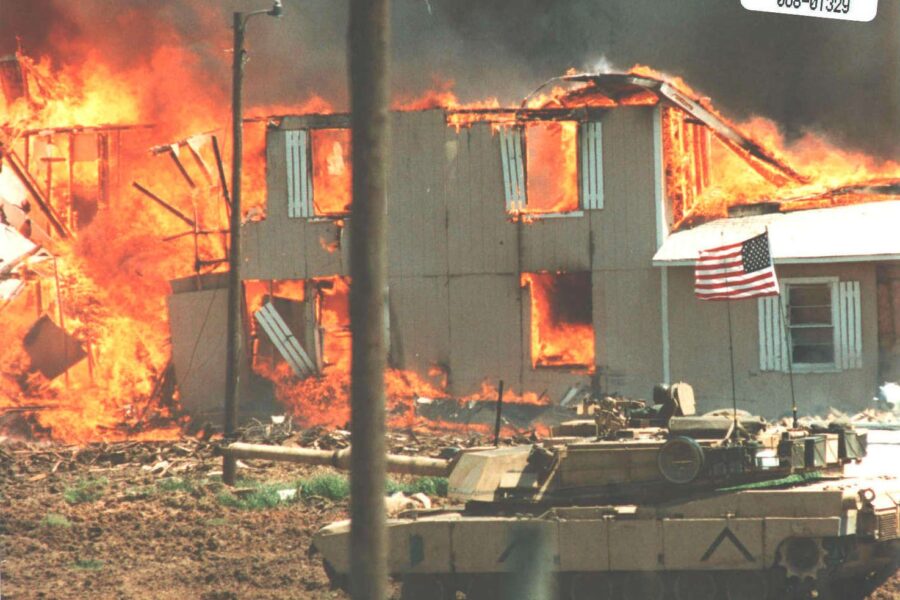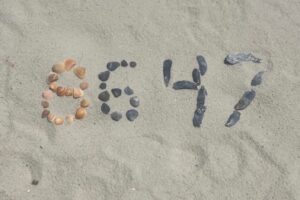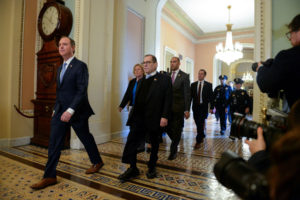Netflix has released a documentary series called Waco: American Apocalypse. It deals with the U.S. government’s 51 day siege of the Mount Carmel Center ranch 13 miles northwest of Waco, Texas, where members of the Branch Davidian sect of the Seventh Day Adventist Church lived and were killed.
In 1992, the federal Bureau of Alcohol, Tobacco and Firearms (“ATF”) received information that the Branch Davidians were stockpiling illegal firearms. When agents began their investigation, the sect’s leader, David Koresh, offered to speak with the ATF and let it inspect the firearms and their related paperwork.
The ATF refused Koresh’s offer. Instead, it began a lengthy surveillance of the ranch in preparation for a dawn raid.
As has become the standard practice of federal law enforcement, the ATF tipped off local media to the impending assault. This resulted in word of the “surprise” search leaking to Koresh and the Branch Davidians. So it was that, on February 28, 1993, when 75 heavily armed ATF agents attacked the Mount Carmel Center, the Davidians were prepared.
There was a massive firefight in which 4 ATF agents and six Davidians were killed. The ATF retreated and set up a perimeter. The Clinton administration, in the person of Attorney General Janet Reno, decided to have the FBI take over.
There followed 51 days of negotiations between Koresh and FBI negotiators. Finally, on April 19, 1993, the FBI broke off negotiations and sent in heavily armed agents spearheaded by armored “Combat Engineering Vehicles” (a euphemism for tanks) to flatten the Davidians’ compound. Fire broke out and the compound burned to the ground.
76 Davidians (including 28 children) were killed and 11 wounded.
When all of this happened, I was shocked by the ATF’s decision to launch what I deemed to be a wholly unnecessary raid. What would have been wrong with talking to Koresh and inspecting the allegedly illegal firearms? Why hadn’t the ATF tried that instead of resorting to a SWAT raid on steroids?
Similarly, I couldn’t comprehend or justify the FBI’s use of tanks on civilians and was appalled by the deadly outcome.
Nevertheless, under the tutelage of the secular media, I assumed that Koresh and the Davidians were a bunch of religious fanatics who were impervious to reason.
But then two things happened. First, I was asked by the Baltimore Sun to review two books about the Waco massacre. These books were eye-openers and made me reconsider my assessment of the Davidians and their beliefs.
Second, I saw the testimony of the surviving Davidians before Congress. They impressed me as sane, serious, humble, deeply religious and decent people. They were hardly incoherent, deranged Bible thumpers passing around snakes and speaking in tongues.
I still haven’t reached any firm conclusion about who set fire to the compound. But I remain convinced that federal law enforcement grossly mishandled the situation from beginning to end with tragic results.
Below is my book review which was published by the Baltimore Sun on July 30, 1995. If you make it all the way to the end, you see that my byline at the Sun was Lloyd George Parry. In fact, my full name is Lloyd George Parry, Jr. My Welsh father was named after British Prime Minister David Lloyd George, the Welsh Wizard.
Waco: The civil liberties industry failed
Question: What’s the difference between a Christian fundamentalist and a spotted owl?
Answer: It’s a federal crime to kill and roast a spotted owl.
For a growing but still microscopic minority of Americans that exchange pretty well sums up the tragedy at Waco in which 76 men, women and children of the Branch Davidian sect suffered fiery deaths at the hands of the U.S. government.
Unlike spotted owls, redwood trees, or, for that matter, defense contractors and health care lobbyists, the Davidians were seen as belonging to no protected or politically influential class. Instead, as Bible-quoting fundamentalists, they were part of a marginal species whose God-centered existence and literal adherence to Scripture invite the scorn of mainstream secular society while affording comic relief to the intellectual elite.
Little wonder that a federal government that is, at best, religiously tone deaf could so easily dismiss Seventh Day Adventists living in anticipation of the Apocalypse as crazed, gun-toting cultists under the mind control of the redneck messiah, David Koresh.
How and why the government came to intervene in the affairs of the Davidians has raised serious and disturbing questions about the place of religion in the modern American state.
“Why Waco? Cults and the Battle for Religious Freedom in America,” by James Tabor and Eugene Gallagher (Berkeley: University of California Press. 252 pages. $24.95) and “The Ashes of Waco: An Investigation,” by Dick Reavis (New York: Simon & Schuster. 320 pages. $24) address these questions and attempt to explain the dismaying process by which the U.S. government convinced itself that the use of lethal force against a religious sect was justifiable and proper.
Of similar concern, during the entire 51-day siege, neither the news media nor the civil liberties industry seriously questioned the government’s claim that the isolated Davidian community somehow posed a clear and present danger requiring armed intervention.
From the initial assault by the ATF to the FBI’s fiery final solution, not a single influential voice challenged the government’s version of events or spoke on behalf of the Waco sect.
That the Davidians fiercely defended their home was seen as proof positive that our government had properly confronted a dangerous and lawless element. And yet no one questioned whether the invasion was warranted in the first place or whether it was necessary to use force to end the siege.
In this regard, the Davidians were dispatched with less public outcry than that raised against the clubbing of baby seals. So the questions arise. Did the civil liberties industry exercise its right to remain silent because the Davidians were simply not trendy enough victims? What would the reaction of, say, Ed Asner and the ACLU have been if the FBI had wiped out a cell block of rioting convicts instead of 76 religious zealots?
The atrocity of the Oklahoma City bombing – on the anniversary of the Waco fire – revealed to a clueless news media the festering and deeply held resentments abroad in the land against a federal government that is perceived as having abandoned the very people it is supposed to serve.
Dusky legions
But don’t be misled by the news media. This resentment is not limited to overweight, loony-tunes militias waddling through the boondocks as they prepare to repulse the dusky legions of Boutros Boutros-Ghali.
There are sane, rational, every-day Americans who view the assault on the Branch Davidian religious sect as further proof that the federal government does not represent them or their interests. Once part of “the silent majority,” they see themselves as powerless, disenfranchised and besieged by a government that forces them through taxation to subsidize and promote that which is anathema.
They see a government that forbids prayer in school while using their money to publish photographs of their crucified Savior submerged in urine. They see a government that diverts millions of dollars from research on Alzheimer’s, heart disease and cancer to hasten the day when drug abusers can share needles and homosexuals can sodomize each other without fear of AIDS. They see a government that, in the name of affirmative action, punishes them for the color of their skin to atone in some incomprehensible fashion for the sins of long-dead slave traders. They see a government that willingly sacrifices rural America’s jobs and way of life so that the kangaroo rat and other wildlife critters can grow and multiply according to the transcendental teachings of the Sierra Club.
And, when they ask why things have to be this way, they are told by the elites of the government and news media that they simply aren’t smart enough to really understand the answers.
This, then, is the cauldron of bile that for decades has quietly and inexorably been rising in temperature. Now, stoked by the fires of Waco, the pot is on the verge of boiling over. And, to one side, bellows in hand, the gun lobby fans the flames of resentment in its never-ending campaign of vilification against its mortal enemy, the ATF.
Against this background, the Congress last week opened its Waco hearings. But as the National Rifle Association revs up its calliope, the news media go for the defining three-second sound bite, the government spin doctors repackage history and the conspiracy theories replicate like fungi on steroids, it remains to be seen whether a dispassionate, unbiased account of what truly happened will ever be heard above the din. It is heartening, therefore, to see these two thoughtful, well-researched books.
In “Why Waco?” James Tabor, associate professor of religious studies at the University of North Carolina, and Eugene Gallagher, professor of religious studies at Connecticut College, examine in detail the history of the Davidians, the Scriptural bases for Koresh’s teachings and the events leading up to and during the siege. In “The Ashes of Waco,” Dick Reavis, a 1990 Nieman Fellow, covers much the same ground while offering insight into the criminal prosecution of the surviving Davidians.
All of the authors render valuable service by meticulously assaying the amalgam of misinformation, errors of judgment and religious ignorance that led the ATF and FBI to mistake a voluntary religious community for a Jones-town-style cult that needed swift ministrations by the business end of government.
The authors provide persuasive accounts of the Davidians as intelligent, rational people capable of independent thought who were free to come and go as they pleased. They lived according to Koresh’s harsh interpretation of Scripture not because he had seized their minds but because they believed it was God’s plan. To the government and its mental health consultants, such a belief had to be deranged.
Most distressing of all, the authors point out that, just prior to the final deadly assault, Koresh was negotiating in good faith when he promised to surrender once he completed a manuscript “decoding” the Seven Seals of the Book of Revelation.
But such talk by Koresh had long since been dismissed by the FBI as “Bible babble.” So, with the addition of allegations that the Davidians were engaging in child sexual abuse – a proven hot button – the government moved in, flattened the compound, and, in the process, showed the world what real child abuse looks like.
Legalities, tactics
While in the main the authors set sure hands to their work and provide an enormous amount of information that has been ignored by the media and the Congress, they falter somewhat in their interpretation of the legal and tactical bases for the agents’ actions.
For example, while the authors contend that the ATF’s probable cause to search the Davidian compound was faulty, the agents had a duly signed warrant.
Thus, by definition, the ATF had clear legal authority to enter the compound. Moreover, regardless of whether the ATF or the Davidians fired first, 24 agents were killed or wounded. Accordingly, the FBI had the legal right to arrest the assailants without delay. The authors are on firmer ground when they demonstrate that while the FBI showed great restraint by negotiating for 51 days, it tragically wasted those negotiations by failing to comprehend who and what it was confronting.
If the government had listened to the Davidians, it would have known that they perceived American society as a Babylon hostile to their religious beliefs. Believing that they were surrounded by the forces of Babylon, they were prepared to die for their religion. In an earlier age, they would have been called martyrs. Today we call them lunatics.
Babylon indeed.
Lloyd George Parry was a federal prosecutor with the Organized Crime Task Force in Upstate New York from 1972 to 1978, chief of the Police Misconduct unit of the Philadelphia, Pa. district attorney’s office from 1978 to 1983 and prosecuted police offecers who were videotaped beating MOVE radicals. He practices law in Philadelphia.




Leave a Reply
Leave a reply.